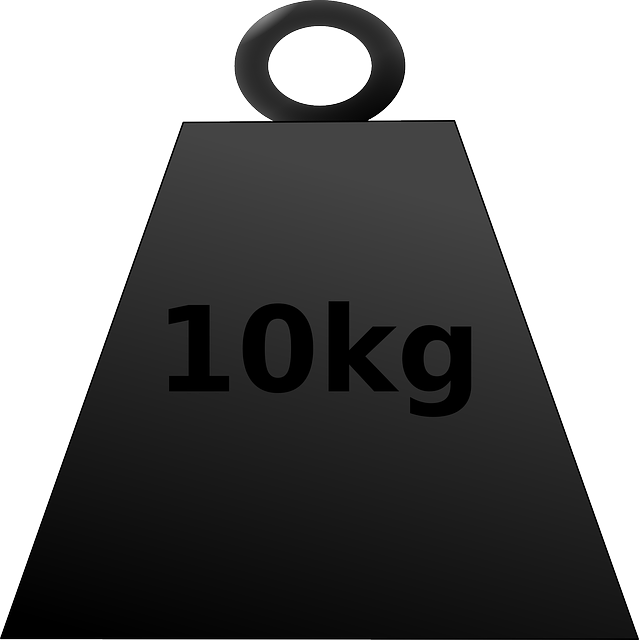Semaglutide, a GLP-1 receptor agonist, is widely recognized in reviews on semaglutide for weight loss for its dual role in treating type 2 diabetes and managing obesity. Its mechanism mimics natural GLP-1 to improve glycemic control and reduce appetite, aiding significant weight loss when combined with diet and exercise. User feedback, through reviews on semaglutide for weight loss, is crucial for assessing real-world effectiveness and safety, offering quantitative data and anecdotal insights alongside clinical trial results. Online platforms, especially social media, have become vibrant tapestry of user experiences, providing valuable perspectives on medication effectiveness, side effects, and user satisfaction. Key metrics include user satisfaction, weight loss achieved, and improvements in health markers. Users consistently praise semaglutide's appetite regulation and its ability to mimic natural hunger hormones, leading to holistic improvements in well-being. Negative comments often relate to initial side effects or dosing challenges, emphasizing the need for enhanced patient education and support. Reviews on semaglutide for weight loss offer valuable insights into real-world treatment outcomes, guiding pharmaceutical developers and healthcare providers in refining treatments and improving patient management through personalized approaches.
Semaglutide, a groundbreaking medication for type 2 diabetes and weight management, has garnered significant attention due to its potential to facilitate substantial weight loss. Beyond clinical trials, user feedback plays a pivotal role in assessing its real-world effectiveness. This article delves into the world of semaglutide, exploring the value of reviews on semaglutide for weight loss. We analyze positive testimonials, dissect negative feedback, and correlate these experiences with clinical trial outcomes, offering insights that shape future development and patient care.
Understanding Semaglutide and Its Indicated Uses

Semaglutide is a novel glucagon-like peptide-1 (GLP-1) receptor agonist, primarily indicated for the treatment of type 2 diabetes and weight management. Its mechanism involves mimicking the effects of natural GLP-1, which stimulates insulin secretion in a glucose-dependent manner, while also slowing gastric emptying. This dual action helps to improve glycemic control and promote feelings of satiety, making it a valuable tool for managing blood sugar levels.
In the context of reviews on semaglutide for weight loss, numerous studies have highlighted its efficacy as an adjunct therapy for individuals struggling with obesity or overweight. By reducing appetite and increasing feelings of fullness, semaglutide has shown promise in aiding weight loss when combined with a balanced diet and increased physical activity. User feedback often emphasizes the medication’s ability to curb cravings, leading to reduced calorie intake and improved body composition over time.
The Role of User Feedback in Drug Evaluation

User feedback plays a pivotal role in evaluating the effectiveness and safety of drugs, especially those designed for chronic conditions like type 2 diabetes and obesity. In the context of semaglutide, a medication renowned for its efficacy in weight loss management, reviews from real users offer invaluable insights. These reviews are not just anecdotal but provide quantitative data on patient experiences, highlighting improvements in blood sugar control, body mass index (BMI), and overall well-being. By analyzing such feedback, healthcare professionals can gain a comprehensive understanding of the medication’s impact beyond clinical trials.
The value of user feedback lies in its ability to capture real-world experiences, which often differ from controlled trial environments. Reviews on semaglutide for weight loss, for instance, may include reports on changes in lifestyle, dietary habits, and exercise routines, all of which contribute to a holistic view of the drug’s effects. This approach ensures that the evaluation is not just based on scientific measures but also considers the patient’s perspective, making it an essential tool in personalized medicine.
Prevalence and Sources of Reviews on Semaglutide for Weight Loss

In the digital age, online platforms have become a vibrant tapestry where users share their experiences and insights, especially regarding health and wellness products like semaglutide for weight loss. The availability of reviews on semaglutide for weight loss is extensive, with many sources contributing to this growing body of user feedback. From dedicated review sites to social media forums and healthcare communities, individuals are actively sharing their journeys and outcomes. This influx of personal narratives provides valuable insights into the effectiveness, side effects, and overall user satisfaction associated with semaglutide as a weight loss aid.
Social media platforms, in particular, have emerged as powerful tools for disseminating these reviews on semaglutide for weight loss. User-generated content on Instagram, Facebook, and Twitter offers a glimpse into the real-life experiences of individuals who have incorporated semaglutide into their weight management routines. These authentic accounts often include before-and-after transformations, discussions on dosage, and practical tips for navigating the treatment process. Such transparency fosters a sense of community among users and can significantly influence others’ decisions regarding semaglutide use for weight loss.
Key Metrics to Gauge Success from User Feedback

When evaluating user feedback on semaglutide for weight loss, several key metrics stand out as crucial indicators of its effectiveness. The first is user satisfaction, measured through ratings and qualitative comments in reviews on semaglutide for weight loss. Positive feedback regarding improved energy levels, reduced hunger pangs, and ease of use can underscore the medication’s acceptability.
Another critical metric is the degree of weight loss achieved by users. Reviews on semaglutide for weight loss should include data on average weight loss over specific periods, with a focus on sustained reductions. Additionally, tracking improvements in related health markers, such as blood pressure and cholesterol levels, can provide a comprehensive view of the medication’s overall impact beyond just weight management.
Analyzing Positive Testimonials: Common Themes and Benefits

When analyzing reviews on semaglutide for weight loss, a common thread among positive testimonials is the drug’s impact on appetite regulation. Users often report feeling fuller for longer periods, leading to reduced calorie intake and significant weight loss. This benefit is attributed to semaglutide’s ability to mimic natural hunger hormones, providing a more sustained sense of satiety compared to traditional dieting methods.
Another recurring theme in positive feedback is the improved overall health experienced by users. Many individuals mention increased energy levels, better blood sugar control, and reduced cholesterol levels as additional advantages. These collective experiences suggest that semaglutide not only aids in weight loss but also promotes a more holistic sense of well-being, making it a game-changer for those seeking sustainable lifestyle changes.
Deconstructing Negative Feedback: Challenges and Side Effects

When analyzing user feedback on semaglutide for weight loss, it’s crucial to deconstruct negative comments carefully. Many reviews highlight challenges related to side effects, such as nausea, vomiting, and diarrhea. These symptoms are common in the early stages of treatment but often subside as the body adjusts. It’s essential to differentiate between temporary adverse reactions and ongoing issues that might require dose adjustments or alternative medications.
Additionally, some users express difficulty in adhering to the prescribed dosing schedule or report challenges with the injection method. These concerns underscore the need for comprehensive patient education and support throughout treatment. Addressing these challenges through clear communication, regular follow-ups, and accessible resources can improve patient satisfaction and outcomes in reviews on semaglutide for weight loss.
Correlating User Experiences with Clinical Trials

In the realm of healthcare, user feedback plays a pivotal role in understanding the real-world impact of medical treatments. When it comes to semaglutide for weight loss, reviews and experiences shared by users offer valuable insights that complement clinical trial data. While controlled trials provide rigorous scientific evidence, user reviews shed light on the day-to-day lives of patients. By correlating these experiences, healthcare professionals gain a more comprehensive view of semaglutide’s effectiveness beyond laboratory settings.
Reviews on semaglutide for weight loss often highlight changes in diet, exercise habits, and overall lifestyle as users strive to maintain their reduced weight. These anecdotal accounts can be powerful indicators of the medication’s long-term benefits and potential challenges. By comparing user feedback with clinical trial outcomes, researchers and healthcare providers can better assess the drug’s performance, identify common side effects, and tailor treatment plans to individual needs, ensuring a more personalized approach to weight loss management.
Implications for Future Development and Patient Outcomes

The collective insights from reviews on semaglutide for weight loss offer valuable implications for future development and patient outcomes. As user feedback highlights both positive and negative experiences, it serves as a compass guiding pharmaceutical developers to refine existing formulations and design more personalized treatments. By understanding patients’ challenges, such as side effects and administration preferences, researchers can innovate to create improved semaglutide-based therapies.
These insights also underscore the importance of patient education and support. Integrating user feedback into clinical guidelines enables healthcare providers to better manage expectations, mitigate adverse events, and ultimately foster better adherence to treatment regimens. As the body of evidence grows, continued monitoring and adaptation will be crucial to ensure that semaglutide-based weight loss solutions not only meet but exceed patient needs and expectations.
